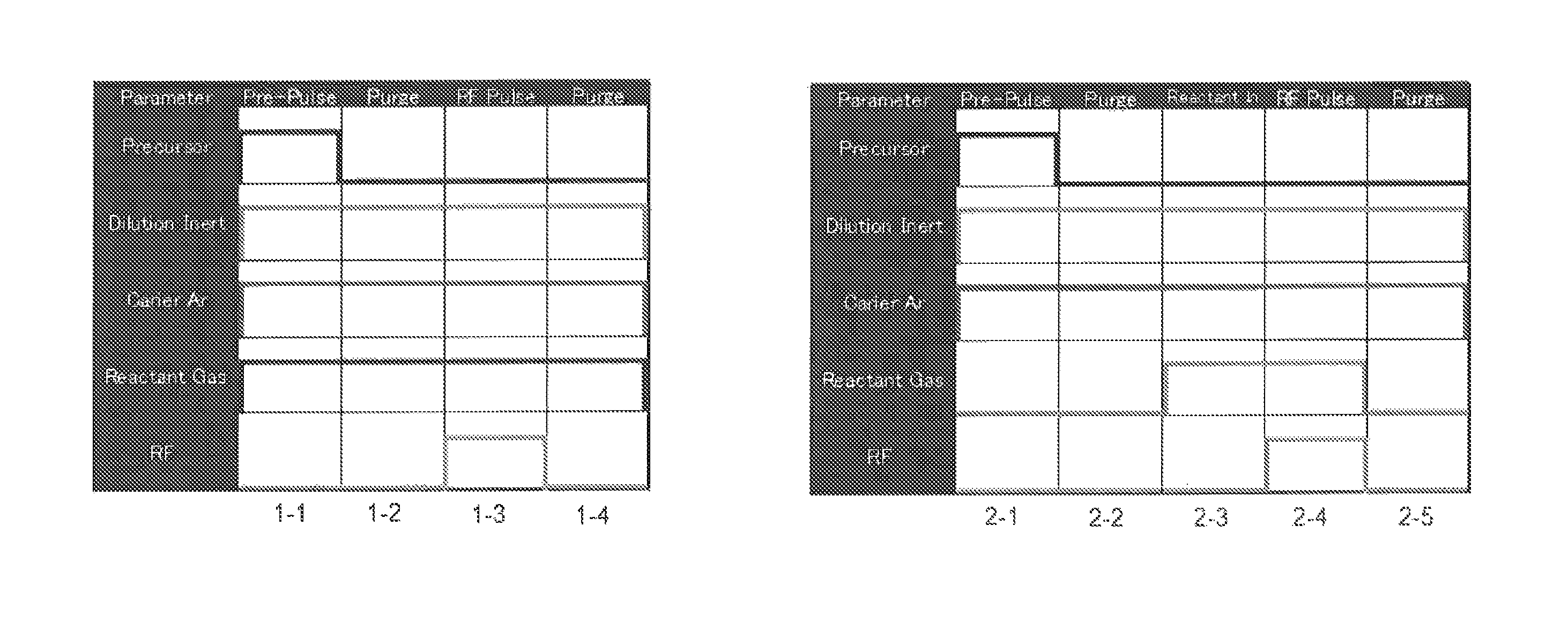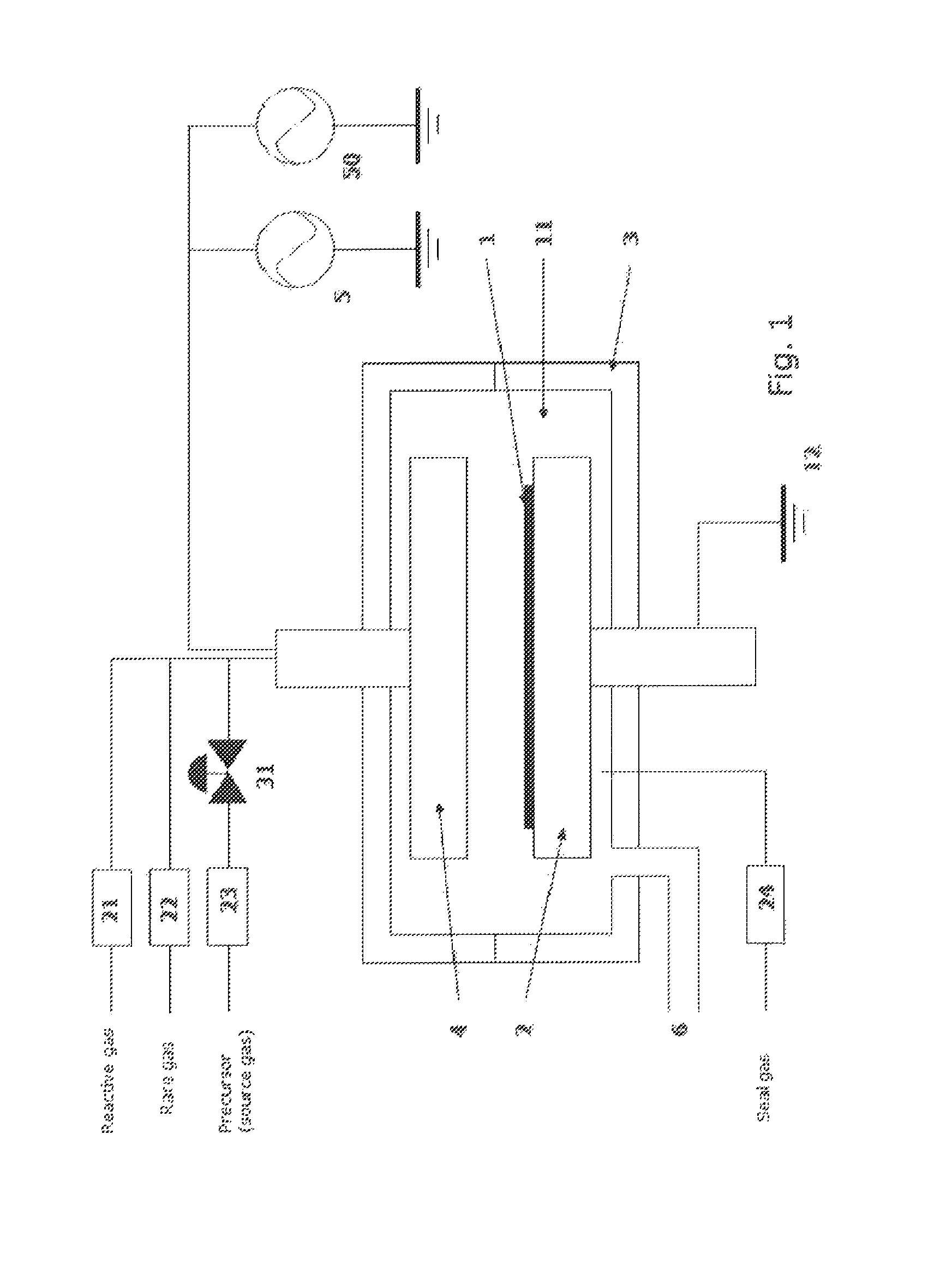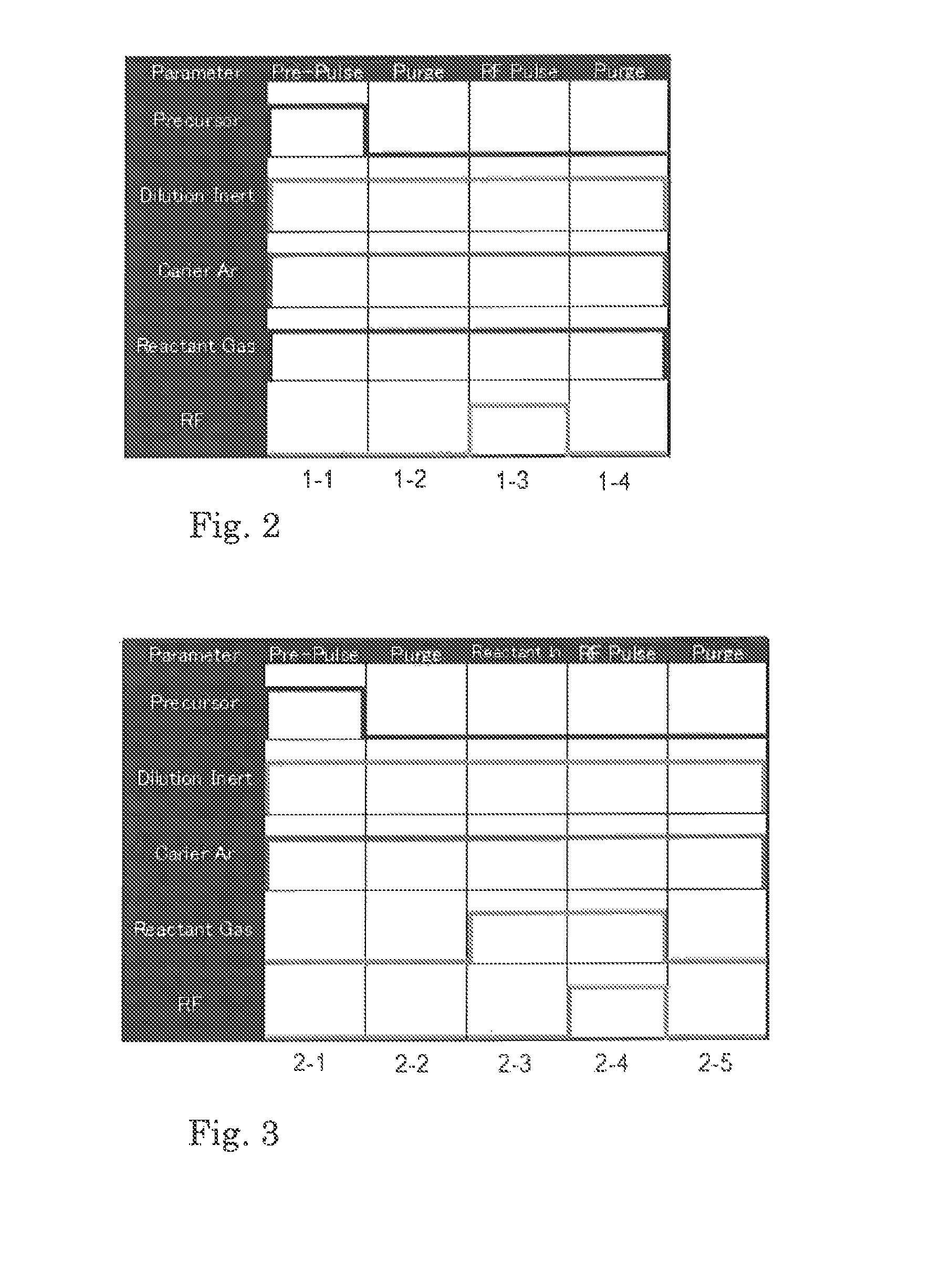Method for forming insulation film using non-halide precursor having four or more silicons
a technology of non-halide precursors and insulation films, applied in the direction of chemical vapor deposition coatings, coatings, plasma techniques, etc., can solve the problems of unwanted deposition inside the exhaust pipe or particles, the use of halide precursors is associated, and the above methods face not only the cost increase problem, but also the productivity decrease problem. achieve the effect of improving chemical adsorption
- Summary
- Abstract
- Description
- Claims
- Application Information
AI Technical Summary
Benefits of technology
Problems solved by technology
Method used
Image
Examples
example
Method and Conditions
[0058]Insulation films (SiN, SiCN, and a-Si) were each formed on a 300-mm substrate having a patterned surface having an aspect ratio of about 2 and an opening width of about 50 nm under the conditions shown below using Sequences 1 to 3 illustrated in FIGS. 2, 3, and 4, respectively, and the apparatus illustrated in FIG. 1. The thickness of film was 30 nm for evaluating film properties. The conditions of PEALD are shown in Tables 2 and 3 below:
[0059]
TABLE 2Sequence 1Sequence 2Sequence 3StepDuration (sec.)StepDuration (sec.)StepDuration (sec.)1-10.52-10.53-10.51-212-213-211-312-323-311-40.32-413-422-50.33-513-60.3
[0060]
TABLE 3Reactant:DilutionRFPGTEXPrecursorSQFilm(SLM)(SLM)(W)(Pa)(min)(° C.)0Hexachlorodisilane1 SiNNH3: 3Ar: 1200300124000′Hexachlorodisilane1 SiNNH3: 3Ar: 1200300121000″Hexachlorodisilane1 SiNH2 / N2: 1Ar: 1200300121001Cyclopentasilane1 SiNNH3: 3Ar: 1400300124002Cyclopentasilane2 SiNNH3: 3Ar: 1400300124003Cyclopentasilane1 SiNN2 / H2: 3Ar: 140030012100...
PUM
| Property | Measurement | Unit |
|---|---|---|
| temperature | aaaaa | aaaaa |
| thickness | aaaaa | aaaaa |
| thickness | aaaaa | aaaaa |
Abstract
Description
Claims
Application Information
 Login to View More
Login to View More - R&D
- Intellectual Property
- Life Sciences
- Materials
- Tech Scout
- Unparalleled Data Quality
- Higher Quality Content
- 60% Fewer Hallucinations
Browse by: Latest US Patents, China's latest patents, Technical Efficacy Thesaurus, Application Domain, Technology Topic, Popular Technical Reports.
© 2025 PatSnap. All rights reserved.Legal|Privacy policy|Modern Slavery Act Transparency Statement|Sitemap|About US| Contact US: help@patsnap.com



